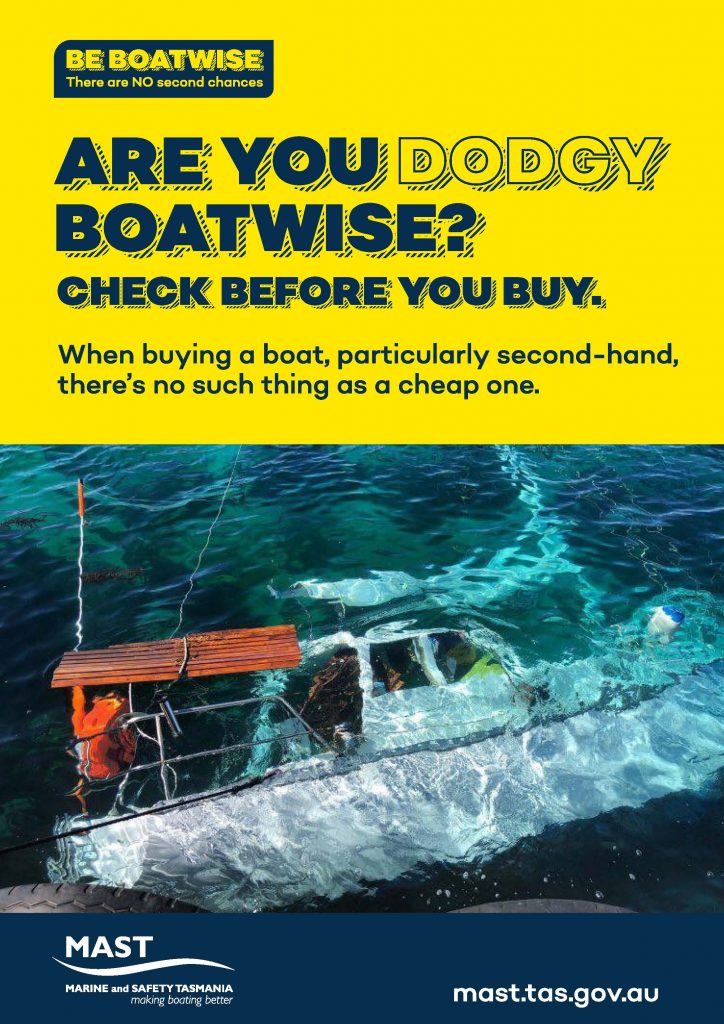Aluminium Hulls
The two areas that can be problematic in aluminium boats are electrolysis and fractured welds.
Electrolysis causes the aluminium to corrode and is due to the presence of dissimilar metals. It is important to keep a regular check on the hull as this corrosion will eventually result in holes in the aluminium. Areas to monitor include:
- around fastenings (bolts, screws and rivets)
- where the hull is in contact with trailer rollers and skids
- the bilge where water and debris can sit for long periods.
Welding fractures particularly occur:
- at frame connections
- along the keel at the chines
- where any transom brackets are welded
GRP (Fibreglass) Hulls
The two problem areas in fibreglass boats are delamination and rotting of the core material and fractures in the glass laminate.
- Transom cores – completely remove engine mounting bolts or bilge drain plugs to inspect the timber inside the laminate. Water can enter and become trapped inside eventually rotting the timber reducing the structural integrity of the transom.
- Frame Cores – This can also happen within any frames in the boat. These are also normally timber cored. Remove any flooring to inspect the condition of these frames.
Glass laminate stress fractures can occur either in a panel or at a joint and occur under heavy load or point load areas such as:
- where thwarts connect to the hull
- along the keel or chines
- gussets connecting the transom
In addition to the hull, the seller may also be including all the safety gear. This can be a trap as the gear may be old and out of date!
- Check the use-by date on the flares
- Does the EPIRB have current battery life and registration
- Are the life jackets the new AS4758 standard and if they are inflatables, are they in service?
- If there is a marine radio, is it a VHF or an old and redundant 27mg radio?
All these items need checking. If they need replacing it could cost you a lot more than you think. So, if considering buying a second-hand boat make sure you do your research and check the hull and any safety equipment.
Make sure you check the engine thoroughly and ask when the last service was, take the cowling off and check the oil level, look for oil leaks and issues around gaskets.
If a trailer boat, ensure you check this from the winch strap to the back of the trailer. Check for rust, check the wheel bearings and brakes. Don’t forget to also check the trailer.
